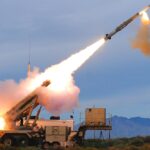Humanitarian Forum In Riyadh Promotes Innovation, AI Usage In Disaster Response

At the heart of the Riyadh International Humanitarian Forum was the need to reduce funding gaps in humanitarian aid and use science and innovation for quicker response and coordination. This third forum was put together by the United Nations and its humanitarian groups with help from the King Salman Center for Relief and Humanitarian Aid. The event took place in the Saudi capital, and world leaders, donors, researchers, and aid groups from all over the world were present.
Some of the top Saudi officials who spoke at the event were Adel Al-Jubeir, the Minister of State for Foreign Affairs; Prince Faisal bin Farhan, the Minister of Foreign Affairs; and Fahad Al-Jalajel, the Minister of Health. UN and EU representatives also spoke at the event. These included UN Aid Chief Martin Griffiths, UN High Commissioner for Refugees Filippo Grandi, EU Commissioner for Crisis Management Janez Lenarcic, and OCHA Humanitarian Financing Director Lisa Doughten. Other speakers included Maria Neira,
, and Maimunah Mohd Sharif, UN Human Settlements Program ED.
The Future of AI
The conference’s purpose was to discuss and make it easier for relief groups to work together. It also seeks to find new ways to improve response times by using technology and digital transformation to help humanitarian efforts more effectively.
Dr. Abdullah Al-Rabeeah, the general supervisor of KSrelief, said that the meetings had good talks about how to close the big gap between needs and funds and how to respond to the growing number of natural and man-made disasters. He said that there are more and more wars, natural disasters, and earthquakes, which means that people need to be better prepared and act faster. He pointed out that one of their problems is coordination. He said that emergency response teams need to work together better, and some suggestions were made at the forum.
At the end of the Riyadh forum, the participants agreed to adopt a set of recommendations that will help them work together better in the areas of partnership, assessment, and anticipatory action. These things will help them reach the UN’s goals for sustainable development by connecting humanitarian, development, and peace work. One of the most important suggestions was the need to analyze humanitarian needs and keep track of interventions by using new technologies, approaches based on research and evidence, data collection mechanisms, and big data analytics. Using the latest technologies, like AI, to help with response work is a new area of humanitarian work, and the Riyadh forum was one of the first international meetings to bring up the need for it.
Takeaways
Using AI to help with disaster relief could make humanitarian efforts much more effective and efficient. AI can help with things like analyzing satellite images to find places that need help, predicting how diseases will spread, and even helping with search and rescue. By bringing together experts and stakeholders from different fields and organizations, the forum can help people work together and share knowledge and resources.
Last Updated on 1 year by News Editor












